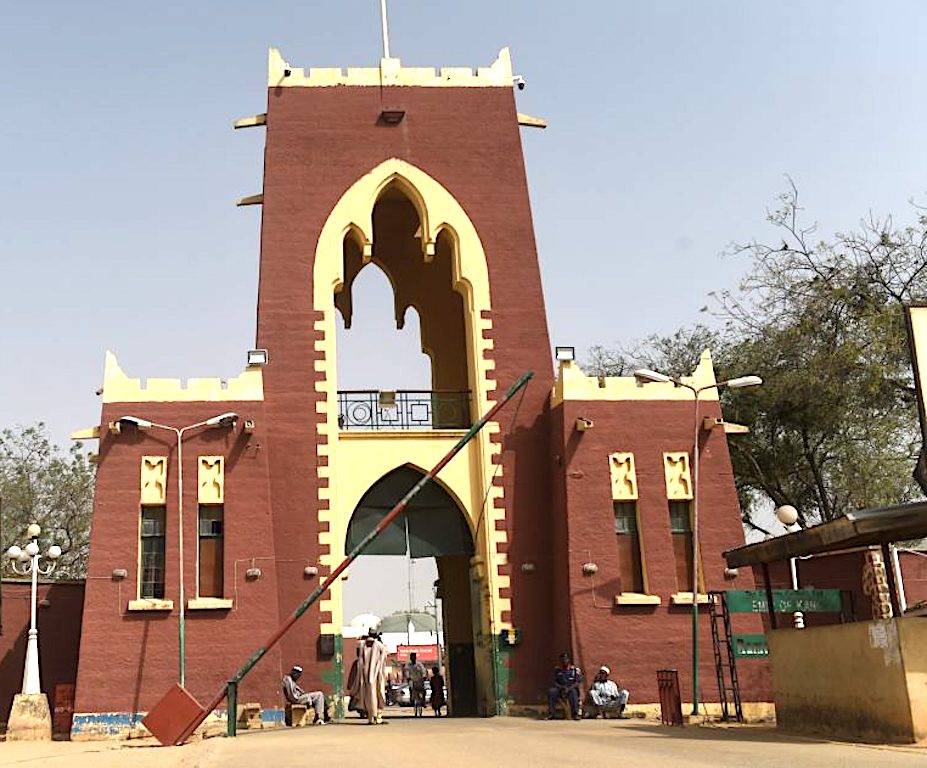Aftermath of the Kano Emirate debacle
Many might consider it a bit early to pontificate today on the debacle surrounding the Kano Emirate. They might be right because the emirate is still in the muddle and wherever you look there seems to be no light at the end of the tunnel. Kano as of last week, would be the only large […]

Many might consider it a bit early to pontificate today on the debacle surrounding the Kano Emirate. They might be right because the emirate is still in the muddle and wherever you look there seems to be no light at the end of the tunnel. Kano as of last week, would be the only large emirate with uniquely two emirs holding court in total oblivion of each other. To rub it in, the two Kano Emirs even attended the Friday congregational prayer last week in separate mosques with all the attendant paraphernalia in tow. But what do you expect? Kano is always different. As its praise singers would say: ‘Kano ta Dabo tumbin giwa. Ko dame kazo an fika’.
I have separated one or two strands in this unwholesome saga, one negative and the other positive, that have fascinated me to no end. The first and from my perspective, the most fascinating is the role of the judiciary which doesn’t seem to have changed at all. Our judiciary has only lived up to its billing, bringing a rather pernicious and toxic influence on the dispute.
The Judiciary touted to be the last stop for all disputants to solve problems, dispassionately, has in this regard failed woefully. The Judiciary, as far as the Kano Emirate case is concerned, has tended to aggravate, pouring oil into the flames, rather than giving a box of solutions. From my estimation, the Judiciary has performed below par.
One finds it difficult to understand how the two lords of separate high courts use the same statutes to give different rulings that have exacerbated the crisis. Insinuations are swirling in social media that might explain the varying behaviour of the judges who gave out these conflicting rulings. However, these should not detain us here. Many judges at retirement from the bench have openly lamented the falling standards of expected behaviour of judges. The most recent was the lamentation of Justice Musa Dattijo, who retired from the Supreme Court last year. Justice Dattijo was reported to have said: ‘My lords, distinguished invitees, ladies and gentlemen, it is obvious that the judiciary I am exiting from is far from the one l voluntarily joined and desired to serve and be identified with. The institution has become something else’.
- Abdulsalami wants renew dedication to national development
- Kwara police, army ‘clash’ over rescue of 8 Kogi varsity students
I am not surprised that the Chief Justice of the Federation, Justice Olukayode Ariwoola, as the chairperson of the National Judicial Council (NJC), is reported to have summoned both the chief judges of the Kano State High Court and the Federal High Court over the conflicting court orders judges under them have issued. The CJN’s summons issued to the two chief judges was said to be a prelude to a full-scale probe. We hope the summons will lead to a full investigation and prompt decisions that will be a closure to this sordid saga which has put Kano City and the nation on tenterhooks.
The other fascinating strand is the gallantry exhibited by Sarkin Gaya, Aliyu Ibrahim Abdulkadir, who displayed composure and astuteness in the face of demotion when his emirate was eroded by the Kano State Emirates Council (Repeal) Law 2024. The Emir who is part of the five first-class emirs whose emirates were dissolved said that he has no plan to challenge it in court. This much he told a BBC Hausa Service correspondent, a day after the event.
Sarkin Gaya said that he sees his removal from the position as an act of God. He added: “Nobody will feel happy about this development, but it is Allah that made you (on the throne), and everything has time. Allah has predestined that this would happen long before we were born, therefore we do not hold a grudge against anybody. It is the will of Allah and we have accepted it wholeheartedly. This is how God wanted it, and it must be done that way. We have no intention of going to court. We have accepted it in good faith. We thank Allah.”
You may say Sarkin Gaya is not part of the fray because he is not from the House of Dabo. However, he could decide to be uncompromising for having been demoted for no just reason but being collateral to the skirmish at the centre. Since he has decided on this stance, he deserves commendations for his gallantry. Nevertheless, it is noteworthy that Gaya has perennially featured in this cycle of emirate creation since when Governor Abubakar Rimi started it all in 1982. Maybe this is because Gaya has always been prominent as one of the oldest settlements in Kano.
Legend has it that it was the Gayawa who founded Kano. That would probably explain why there are generations of Gaya families in the wards around the twin hills of Dala and Gwauron Dutse, the oldest part of Kano City. Over the years, even though Gaya town has been close to metropolitan Kano, it has kept its uniqueness and stature. I guess we haven’t heard the last word on the emirate of Gaya.
